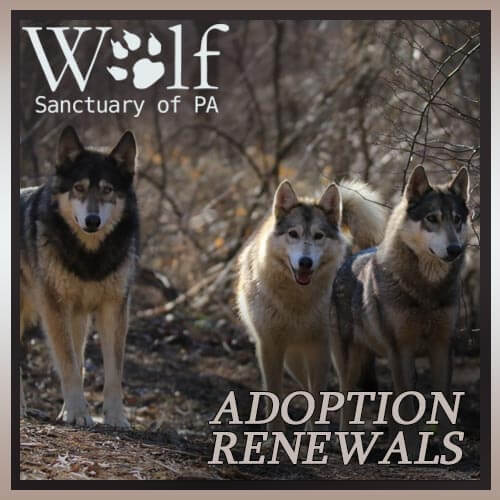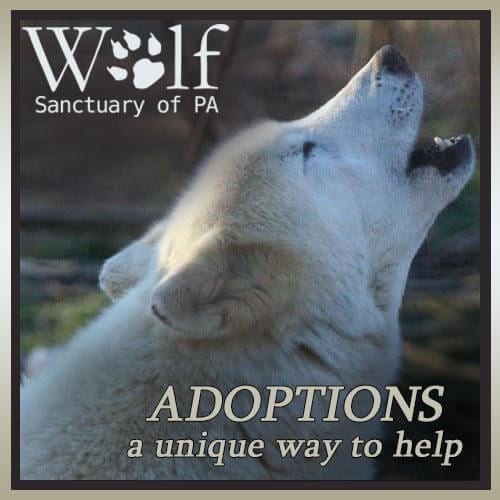Adopting a wolf dog is an exciting yet significant decision that requires careful consideration and preparation. Wolf dogs, as hybrids of domestic dogs and wolves, possess unique traits that make them both fascinating and challenging companions. Understanding their needs and characteristics is essential for a harmonious relationship between you and your new furry friend.
As more people become interested in adopting wolf dogs, it's crucial to approach this decision with knowledge and responsibility. Wolf dogs are not your average domestic pets; they have specific requirements in terms of care, environment, and socialization. This guide will provide you with all the necessary information to help you decide whether adopting a wolf dog is the right choice for you.
Whether you're a seasoned pet owner or a first-time adopter, this article aims to equip you with the tools and insights needed to ensure a successful adoption process. From understanding their behavior to providing the right environment, we'll cover everything you need to know about adopting a wolf dog.
Read also:Rachel Mclish Age The Iconic Journey Of A Fitness Legend
Table of Contents
- Introduction to Wolf Dogs
- Legal Considerations for Adopting Wolf Dogs
- Understanding Wolf Dog Behavior
- Care Requirements for Wolf Dogs
- Choosing a Reputable Rescue Organization
- Environmental Needs for Wolf Dogs
- Training and Socialization Tips
- Health and Veterinary Care
- Common Challenges of Owning a Wolf Dog
- Success Stories of Wolf Dog Adoption
Introduction to Wolf Dogs
Wolf dogs, or wolf hybrids, are the result of breeding domestic dogs with wolves. These animals possess a mix of traits from both species, making them unique and intriguing companions. The level of wolf content in a wolf dog can vary, influencing its behavior and physical characteristics.
Wolf dogs are often admired for their striking appearance and wild nature. However, it's important to recognize that they are not domesticated animals in the same way as dogs. Their wild instincts mean they require specialized care and understanding. Before adopting a wolf dog, it's crucial to research and understand the implications of owning such a unique pet.
What Makes Wolf Dogs Different?
Wolf dogs differ from domestic dogs in several key ways:
- Behavior: They exhibit more independent and cautious behavior compared to domestic dogs.
- Physical Traits: Their appearance often resembles that of wolves, with features like bushy tails, pointed ears, and a sleek coat.
- Instincts: Wolf dogs retain many of the instincts of their wild ancestors, such as pack mentality and territorial behavior.
Legal Considerations for Adopting Wolf Dogs
Before embarking on the journey of adopting a wolf dog, it's essential to familiarize yourself with the legal regulations in your area. Laws regarding wolf dog ownership vary significantly from one location to another, and failing to comply with these regulations can lead to serious consequences.
State and Local Regulations
Some states and municipalities have strict laws governing the ownership of wolf dogs. These laws may include licensing requirements, restrictions on breeding, or even outright bans on owning wolf dogs. For example:
- Certain states, like Alaska, prohibit the ownership of wolf hybrids.
- Other states, such as Texas, allow wolf dog ownership but require permits and specific enclosures.
It's crucial to research and understand the legal requirements in your area before proceeding with adoption. Consulting with local authorities or animal control agencies can provide clarity on these regulations.
Read also:Is James Charles Engaged Unveiling The Truth Behind The Rumors
Understanding Wolf Dog Behavior
Wolf dogs have distinct behavioral traits that set them apart from domestic dogs. Their wild ancestry influences their behavior, making them more independent and cautious. Understanding these traits is vital for building a strong bond with your wolf dog.
Key Behavioral Traits
Some of the notable behavioral traits of wolf dogs include:
- Independence: Wolf dogs are more independent than domestic dogs and may not always follow commands.
- Cautiousness: They are naturally cautious and may take time to trust new people or environments.
- Curiosity: Wolf dogs are highly curious and enjoy exploring their surroundings.
These traits require patience and understanding from their owners. Building trust and providing a safe environment are crucial for fostering a positive relationship.
Care Requirements for Wolf Dogs
Wolf dogs have specific care requirements that differ from those of domestic dogs. Providing the right care is essential for their well-being and happiness. This includes dietary needs, exercise, and mental stimulation.
Dietary Needs
Wolf dogs require a diet that mimics their wild ancestors' eating habits. A raw diet consisting of meat, bones, and organs is often recommended. However, it's important to consult with a veterinarian to ensure the diet meets all nutritional requirements.
Exercise and Mental Stimulation
Wolf dogs are highly active and require plenty of exercise and mental stimulation. Daily walks, playtime, and interactive toys can help keep them physically and mentally engaged. Providing a safe and secure outdoor space for them to roam is also beneficial.
Choosing a Reputable Rescue Organization
When adopting a wolf dog, it's important to choose a reputable rescue organization. These organizations ensure that the animals are properly cared for and placed in suitable homes. Researching and visiting potential rescues can help you find the right match for your family.
Questions to Ask
Before finalizing your adoption, consider asking the following questions:
- What is the wolf content of the dog?
- What is the dog's temperament and behavior?
- What kind of support does the rescue offer after adoption?
Reputable rescues will be transparent about the dog's background and provide guidance on caring for your new companion.
Environmental Needs for Wolf Dogs
Wolf dogs require a specific environment to thrive. Their wild instincts mean they need plenty of space to roam and explore. Creating a safe and enriching environment is essential for their well-being.
Enclosure Requirements
A secure enclosure is necessary to prevent your wolf dog from escaping. The enclosure should be:
- Sturdy and escape-proof.
- Large enough for the dog to move around comfortably.
- Equipped with shelter from the elements.
Providing enrichment items like toys, puzzles, and natural elements can help keep your wolf dog mentally stimulated.
Training and Socialization Tips
Training and socialization are crucial for ensuring your wolf dog becomes a well-adjusted member of your family. While they may not respond to training in the same way as domestic dogs, patience and consistency are key.
Training Techniques
Effective training techniques for wolf dogs include:
- Positive reinforcement using rewards and praise.
- Short, focused training sessions to maintain their attention.
- Respect for their independence and natural instincts.
Socialization with other animals and people should be introduced gradually and positively to build trust and confidence.
Health and Veterinary Care
Wolf dogs require regular veterinary care to ensure their health and well-being. Finding a veterinarian experienced with wolf hybrids is essential for addressing their unique health needs.
Vaccinations and Preventive Care
Wolf dogs may require different vaccinations compared to domestic dogs. Consult with your veterinarian to determine the appropriate vaccination schedule. Preventive care, such as parasite control and dental hygiene, is also important for maintaining their health.
Common Challenges of Owning a Wolf Dog
Owning a wolf dog comes with its own set of challenges. Understanding these challenges can help you prepare for the responsibilities of wolf dog ownership.
Challenges to Expect
Some common challenges include:
- Escape Tendencies: Wolf dogs are known for their escape artist tendencies, requiring secure enclosures.
- Independence: Their independent nature can make training and obedience more challenging.
- Socialization: Building trust and socializing with other animals and people can take time.
Being prepared for these challenges can help you navigate them successfully.
Success Stories of Wolf Dog Adoption
Many people have successfully adopted wolf dogs and formed strong bonds with their unique companions. These success stories highlight the rewards of wolf dog ownership and the positive impact these animals can have on their families.
Testimonials from Owners
Owners often share stories of their wolf dogs' playful nature, loyalty, and intelligence. These testimonials underscore the importance of dedication and understanding in creating a harmonious relationship with a wolf dog.
Conclusion
Adopting a wolf dog is a rewarding yet challenging journey that requires careful consideration and preparation. From understanding their behavior and care requirements to navigating legal regulations, this guide has provided you with the essential information needed for a successful adoption process.
We encourage you to take the next step by researching further and visiting reputable rescue organizations. Share your thoughts and experiences in the comments below, and consider exploring other articles on our site for more insights into pet ownership.


